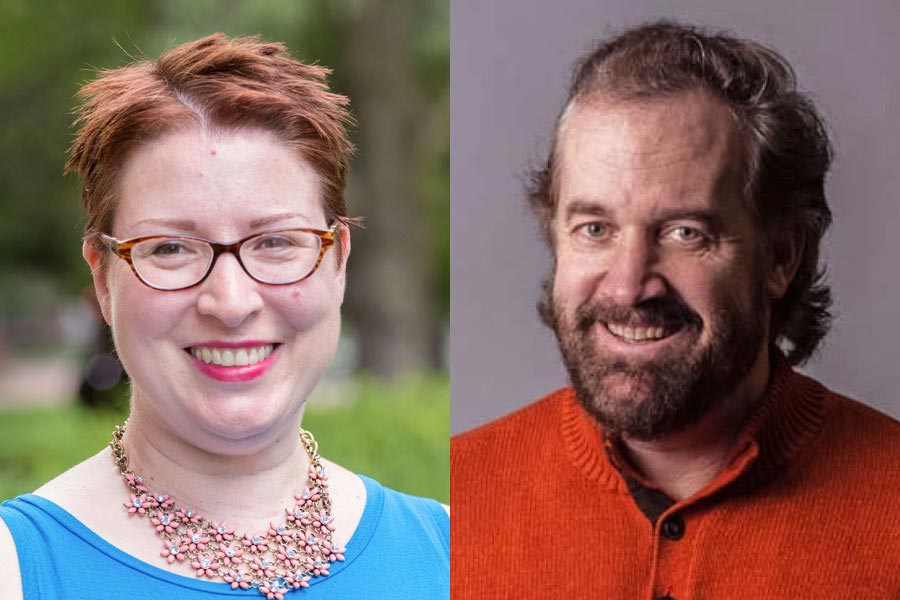

Knox Faculty Help Students Learn to Detect "Fake News"
Knox College faculty are equipping students with the critical thinking skills they need to identify what is "fake news" and what isn't.
While the topic of "fake news" has received heightened attention in recent weeks and months, faculty regularly have taught Knox students about the importance of distinguishing between reliable information and dubious or false information.
For example, Bright Professor of American History Catherine Denial provides students in her Historian's Workshop class with a two-page document she wrote called "Evaluating Websites: Ten Short Reminders." She updates it periodically.
The document advises students to consider various factors "before trusting what you see" on a website. These include:
- The website's purpose. "Good sites tell you their mission."
- The website's funding source. "Third-party funds may influence the information you see."
- The authority of the person or organization providing information on the website. "Give some thought to whether the author seems trustworthy and professional."
Denial said that learning to evaluate websites for their truthfulness and trustworthiness "is an essential skill that can stop you from being duped in all areas of your life."
"You are equipped to spot fake news, to see troubling relationships between who funds a site and what it says, and to discern if someone's making claims that can't be backed up," she added. "It's about being a citizen—a thoughtful, measured, smart citizen—and bringing real attention to how you navigate your responsibilities as such."
Being able to gauge the reliability of information also is a key element of the classes taught by Assistant Professor of Journalism James Dyer. Students discuss the daily news at the start of each class period, scrutinizing it for potential bias and authenticity, he said.
On top of that, Dyer's Centrality of Media and Media & Politics courses delve into the ways students can judge how reliable a source of information is.
"I underscore early on the importance of knowing how to analyze information and discern if it's news, propaganda, marketing, advertising, opinion, PR [public relations], entertainment, rumors and innuendo, or a combination of any of these," Dyer said.
"I teach students to get information from multiple media sources—from left-leaning media, right-leaning media, middle-of-the-road media, international media, etc.," he added. "In this way, students can see multiple perspectives and arguments to any one issue."
Being able to recognize reliable information, as opposed to fake news, is becoming increasingly difficult for various reasons, Dyer said. For instance, modern technology makes it easy to quickly spread information—and misinformation—that can go "viral." Further, Dyer added, it has become "unusually easy for people to choose only sites that distribute information supporting their pre-existing beliefs instead of questioning or challenging them."
"Teaching students how to determine the reliability of news has become one of my most important tasks as a journalism professor," he said.
(Photo at top of page: Bright Professor of American History Catherine Denial and Assistant Professor of Journalism James Dyer.)
Published on December 22, 2016

